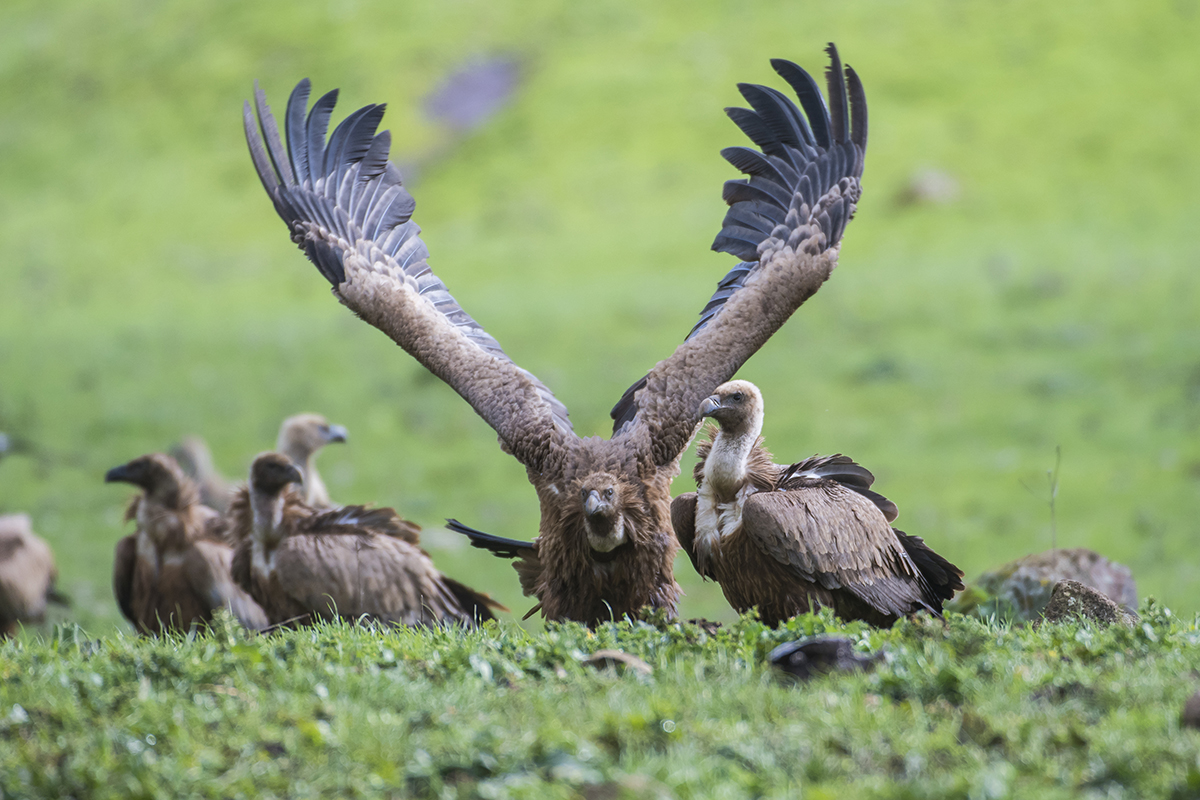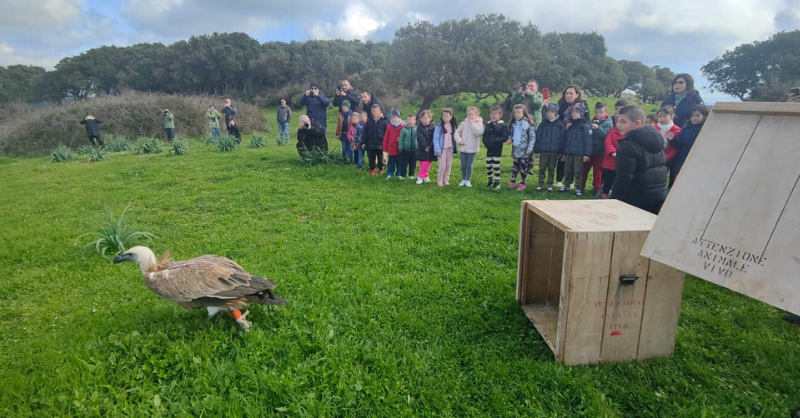The VCF is currently transporting a group of 25 Griffon Vultures (Gyps fulvus) from Extremadura (Spain) to Sardinia, for a restocking project in Porto Conte Natural Park, funded by the EU LIFE fund.
Most of the vultures have been collected in the wild in Extremadura, weakened or injured, and entered two wildlife recovery centers there: AMUS and Los Hornos. One of the birds was born in captivity, in the Selwo Aventura (Estepona, Spain).
This journey will take around 24 hours, covering over 2000 km, half of them by land and the other half by sea (taking a ferry boat from Barcelona). After the arrival in Sardinia (Porto Torres), the birds will spend the quarantine period in a wildlife rehabilitation center: Centro regionale per l’Allevamento ed il Recupero della Fauna Selvatica (C.A.R.F.S.) di Bonassai, and after that will be transferred to a release aviary in Porto Conte. Here the birds have time to acclimatize and get used to the new weather conditions. Each of the vultures will be marked with an individual PVC and metal ring, and some of them with a GPS tag, to enable their tracking in the wild.
These 25 birds are not the first ones to start this adventure – last June another group of 17 birds was transported, all of them coming from Extremadura.
The VCF has established a good collaboration with the ministries of the Spanish autonomous communities of Extremadura, Andalusia, and Castilla-La Mancha, but also with the European Association of Zoos and Aquaria (EAZA) and the central Spanish Ministry for Environment.
The restocking programme is carried out by the University of Sassari (Universita Degli Studi di Sassari) and associated beneficiaries (Agenzia Forestas, Corpo Forestale e di Vigilanza Ambientale della Sardegna and Bosa Municipality), within the framework of a Life project “Implementation of Best Practices to Rescue the Griffon Vultures in Sardinia” LIFE14/NAT/IT/000484.
The VCF is part of the scientific committee of this project, and has been advising on anti-poison actions, and the development of the methodology for the release of vultures. We are also responsible to secure the birds and organize the transport of griffon vultures from Spain to Sardinia.
The project foresees activities that will reduce threats to this species, such as the illegal use of poison, and lack of available food. The project is creating a network of feeding sites maintained by the local livestock breeders, and is monitoring the existing population.
The main goal of the project is to support the remaining small population of griffon vulture in the west part of the island (in Bosa), currently comprising about 35 pairs. This population stable over the last 10 years, with no growth or recolonization of former breeding areas.



